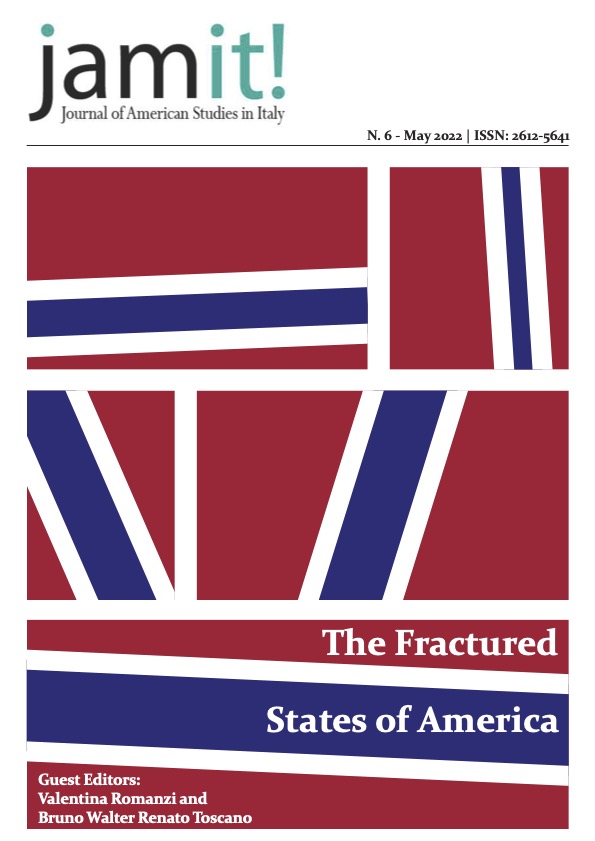The Great Revival
The Idealized American Portrait from the Fifties through the Eighties to Today
DOI:
https://doi.org/10.13135/2612-5641/6080Keywords:
Fifties, Eighties, American exceptionalism, Myth, ReaganismAbstract
The Fifties have been consolidated in the American ethos as one of the best times in American history, the iconography of which was vigorously evoked during Reagan’s presidency in an attempt to erase the civil rights victories of the Sixties. The paper focuses on the different interpretations of Fifties and Eighties imagery in popular culture and their role in shaping the definition of Americanness, highlighting the contrast between the idealized portrait of American society and the underlying tensions beneath the surface. Taking the Eighties as the focal point of the argument, the analysis goes from the Fifties to the modern day to deal with the influence of the Fifties myth on a new ‘revival’ in the Trump years.
Downloads
Published
Issue
Section
License
Authors who publish with this journal agree to the following terms:
- Authors retain the copyright and full publishing rights for their submissions to the journal.
- Authors grant the journal right of first publication with the work simultaneously licensed under a Creative Commons Attribution-NonCommercial-NoDerivatives 4.0 International License that allows others to share unedited work for non-commercial purposes with an acknowledgement of the work's authorship and initial publication in this journal.
- Authors are able to enter into separate, additional contractual arrangements for the non-exclusive distribution of the journal's published version of the work (e.g., post it to an institutional repository or publish it in a book), with an acknowledgement of its initial publication in this journal.
- Authors are permitted and encouraged to post their work online (e.g., in institutional repositories or on their website) prior to and during the submission process, as it can lead to productive exchanges, as well as earlier and greater citation of published work (See The Effect of Open Access).





